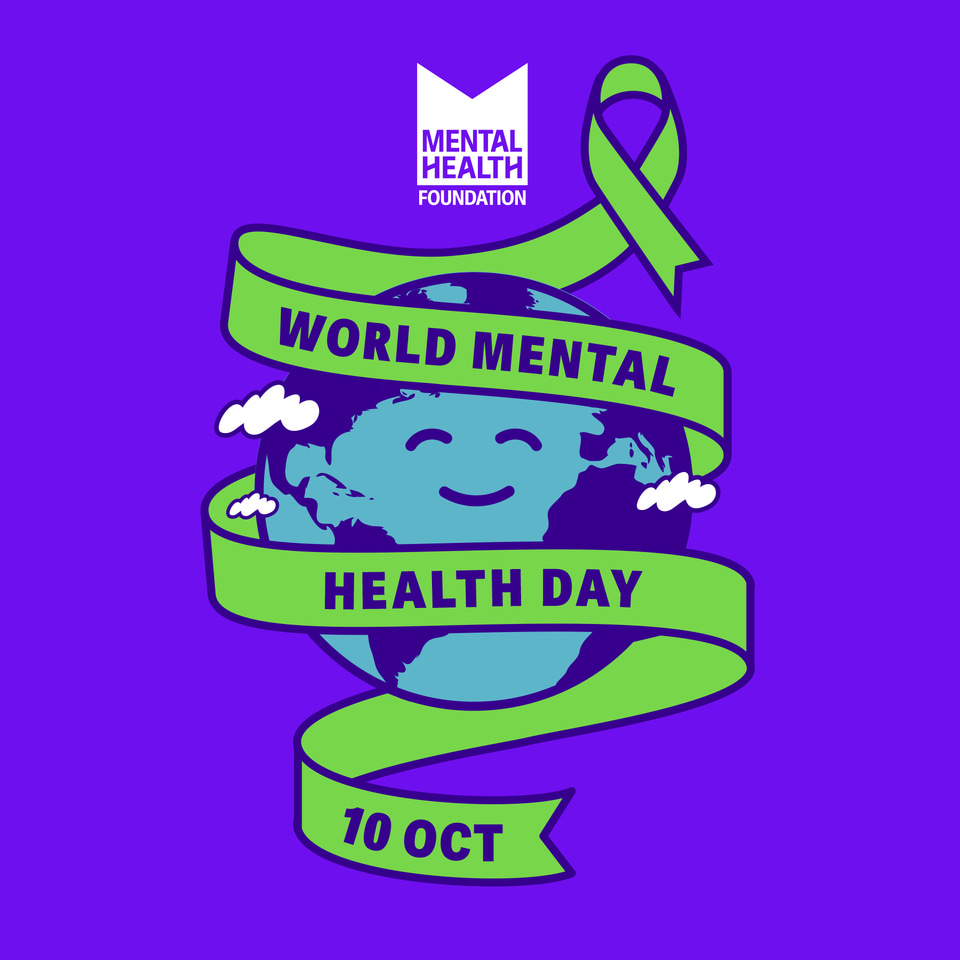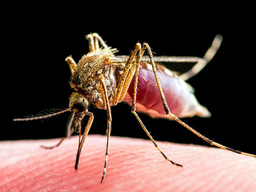World Mental Health Day 2025
Published in Sustainability, Biomedical Research, and Behavioural Sciences & Psychology

World Mental Health Day was first celebrated in 1992 and is marked every year on 10 October. It is an international day for global mental health education, awareness and advocacy against social stigma. This blog post highlights a selection of recent Springer Nature journal articles, books, collections, clinical study registrations and blog posts chosen by our publishers to mark this occasion.
All the featured content is related to the Sustainable Development Goals, specifically SDG 3: "Ensure healthy lives and promote well-being for all at all ages", and the related key target 3.4: “By 2030, reduce by one third premature mortality from non-communicable diseases through prevention and treatment and promote mental health and well-being.”
Highlights from Springer Nature journals
Research published in the World Journal of Pediatrics found that participation in social and physical activities early in life may be crucial for the mental well-being of children with a chronic physical condition.
Trials has also published the protocol of a clinical trial of a relaxation and guided imagery intervention for elementary school children.
A supplement published in Child and Adolescent Psychiatry and Mental Health revealed the findings from the National Adolescent Mental Health Surveys (NAMHS) in Kenya, Indonesia, and Vietnam, focusing on the factors influencing adolescent mental health such as adverse childhood experiences, bullying victimisation and perpetration, social support and mental health service use.
As part of the collection 'Social Determinants of Mental Health' in Conflict and Health journal, an article and blog post described which resources young Afro-Colombian people living in the city of Quibdó on Colombia’s Pacific Coast make use of to improve and support their emotional wellbeing.
Earlier this year the Editorial Board of Biology of Sex Differences celebrated Sex Differences in Health Awareness Day by writing an Editorial exploring the complex relationship between sex differences and the brain, focusing on the vital role of sex differences research in neuroscience and mental health.
An exploratory qualitative study published in International Journal for Equity in Health looked at the manifestations of mental distress in migrant and refugee women in Ecuador and Panama, the causes, the mental health support available to them, and proposals for interventions.
A comment in BMC Global and Public Health discussed the Mind the Gap consortium which aims to scale up access to culturally adapted mental health treatments for minority populations.
An article in the German Journal of Exercise and Sport Research explores how prolonged crises in professional sports teams can lead to significant psychological strain, underscoring the importance of mental health support and crisis management training in high-pressure environments.
Research published in Environmental Health showed that exposure to mold and the use of solid fuels may be associated with a higher prevalence of depression and anxiety among older adults in China.
Books
Recent books published by Springer Nature have examined a wide range of topics from female mental health in 21st century media to the ‘crisis of masculinity’ in young men, from teacher burnout and mental health to campus cultures of mental illness stigma.
The intersection of mental health and digital technology and the use of mental health apps and the interplay between the genetic, biological, and social determinants of mental health have also been explored.
Collections calling for submissions
BMC Women's Health welcomes submissions to their collection on genetics of women's mental health, while BMC Artificial Intelligence invites submissions on AI in mental health monitoring.
There are also collections in the British Dental Journal on the psychological challenges faced by dental professionals, and in BMC Oral Health on the relationship between mental health and oral health.
BMC Psychiatry invites submissions on mood disorders in adolescents, BMC Psychology on bullying, and the Journal of Eating Disorders on refining eating disorder-PTSD links.
ISRCTN: the UK’s Clinical Study Registry
Mental and behavioural disorders are the single largest condition category of clinical trials registered on the ISRCTN registry. Highlights from 2025 include the SPECTRUM study of behavioural sleep improvement programmes for young adults with depression and anxiety, the GREENGAGE study of nature-based activities for people with mental ill-health, and a study of virtual reality-assisted cognitive behavioral therapy for conflict-affected adolescents in Gaza.
Springer Nature Research Communities
Recent blog posts on the Springer Nature Research Communities have covered a wide range of studies of mental health interventions, including arts-based programs for mental health stigma and adverse childhood experiences, mobile apps for young people, self-help online programs for Ukrainian refugees, nature-based therapy, and even synthesized body odors for social anxiety.
There have also been blog posts about how LGBTQ+ young people are disproportionately affected by mental health issues, and about the health disparities faced by trans, non-binary, and gender diverse (TGD) people in the UK.
Conclusion
The UK Mental Health Foundation suggests celebrating World Mental Health Day with a Tea & Talk to raise money for mental health whilst getting together and talking about mental health.
Follow the Topic
-
BMC Global and Public Health

An open access, transparent peer review journal publishing outstanding and influential research and opinion of broad interest to all professional communities involved in global and public health research, policy-making, implementation and delivery worldwide.
-
German Journal of Exercise and Sport Research

This journal stands for the German tradition of sport and exercise studies with its essential characteristic of combining science, the humanities, social and behavioral academic disciplines to arrive at a multifaceted description and theoretical understanding of sport and exercise.
-
Journal of Eating Disorders

This is the first Gold open access, peer-reviewed journal publishing leading research in the science and clinical practice of eating disorders.
-
ISRCTN: The UK’s Clinical Study Registry

A primary clinical trial registry recognised by WHO and ICMJE that accepts studies involving human subjects or populations with outcome measures assessing effects on human health and well-being, including studies in healthcare, social care, education, workplace safety and economic development.
-
Trials

This journal encompasses all aspects of the performance and findings of randomized controlled trials in health, including articles on general trial methodology and trial processes, study protocols and statistical analysis plans for randomized controlled trials, commentaries and traditional results papers.
-
International Journal for Equity in Health

This journal presents evidence relevant to the search for, and attainment of, equity in health across and within countries and publishes research which improves the understanding of issues that influence the distribution of health and healthcare within populations.
-
Conflict and Health

This is a highly-accessed, open access journal documenting the public health impacts and responses related to armed conflict, humanitarian crises and forced migration.
-
Child and Adolescent Psychiatry and Mental Health

This is an open access, online journal that provides an international platform for rapid and comprehensive scientific communication on child and adolescent mental health across different cultural backgrounds.
-
BMC Women's Health

This is an open access, peer-reviewed journal that considers articles on all aspects of the health and wellbeing of adolescent girls and women, with a particular focus on the physical, mental, and emotional health of women in developed and developing nations.
-
BMC Oral Health

This is an open access, peer-reviewed journal that considers articles on all aspects of the prevention, diagnosis and management of disorders of the mouth, teeth and gums, as well as related molecular genetics, pathophysiology, and epidemiology.
-
British Dental Journal

This is an international, peer-reviewed journal for the dental community, published by Springer Nature on behalf of the British Dental Association.
-
World Journal of Pediatrics

This is a monthly journal that publishes peer-reviewed original papers, reviews, and special reports focusing on clinical practice and research in pediatrics.
-
Biology of Sex Differences

This journal is unlike any other scientific journal: articles focus on sex differences in all aspects of an individual or organism. Everything from molecules to behavior and from studies of cellular function to clinical research studies are reported in this journal.
-
Environmental Health

This journal publishes manuscripts on important aspects of environmental and occupational medicine and related studies in toxicology and epidemiology that elucidate the human health implications of exposures to environmental hazards.
Related Collections
With Collections, you can get published faster and increase your visibility.
Mental Health in Children and Adolescents: Emerging Challenges and Interventions
Overview
Children and adolescents represent one of the most vulnerable populations in a rapidly changing world, and mental health problems in these age groups have become an increasingly important global public health concern. Many psychiatric, emotional, and behavioral disorders begin early in life and may persist into adulthood, resulting in long-term consequences for overall well-being. To highlight current evidence on the epidemiology, determinants, and management of pediatric mental health problems, World Journal of Pediatrics invites submissions for this special collection.
Scope of Submissions
We invite submissions on topics related to, but not limited to, the following topics:
1. Epidemiology of pediatric mental and behavioral disorders
Prevalence, risk factors, developmental trajectories, and long-term outcomes of psychiatric, emotional, behavioral, and neurodevelopmental disorders in children and adolescents.
2. Mental health challenges in the digital and artificial intelligence era
The impact of gaming, social media use, screen exposure, and emerging technologies on mental well-being and behavioral health.
3. Prevention and treatment of emotional and psychiatric disorders
Evidence-based interventions for anxiety, depression, and other mental health conditions in pediatric populations.
4. Innovative intervention techniques in pediatric mental health management
Novel technologies, intervention models, and service delivery strategies aimed at improving mental health outcomes in children and adolescents.
Submission Timeline
Submissions are open continuously.
Submission Guidelines
1. Manuscripts should be original, aligning with the special collection’s focus, and adhering to our author guidelines.
2. Non-native English authors are advised to seek professional language editing.
3. All original articles will undergo peer-review process.
4. Please submit through journal editorial system, selecting "Mental Health in Children and Adolescents" in the submission category.
5. World Journal of Pediatrics: https://www.editorialmanager.com/wjop/default.aspx
6. For detailed information on the journal, manuscript types, and instructions for manuscript preparation, please refer to the Instructions for Authors.
Editorial Office Contact
For any enquiries, please contact Yaojia Shen at the Editorial Office via wjpch@zju.edu.cn
Publishing Model: Hybrid
Deadline: Ongoing
Oral and maxillofacial surgery
BMC Oral Health is pleased to announce our upcoming Collection on Oral and maxillofacial surgery. This field integrates various disciplines, including dentistry, medicine, and surgical techniques, to treat complex conditions such as cleft lip and palate, facial deformities, dental implant placement, cancer, and trauma-related injuries. As the field evolves, advancements in technology, such as 3D imaging and computer-assisted surgical planning, are enhancing the precision and outcomes of these procedures, making it imperative to document and disseminate new findings and techniques.
The significance of oral and maxillofacial surgery is underscored by its impact on patients' quality of life. Surgical interventions can alleviate pain, restore function, and improve aesthetic appearance, which are vital for physical and psychological well-being. Research in this area is crucial for informing best practices and ensuring optimal care for patients undergoing these procedures.
We invite submissions that explore various aspects of oral surgery and practice, including, but not limited to:
- Innovations in dental implants
- Cleft lip and palate surgical techniques
- Facial reconstructive surgery advancements
- Minimally invasive jaw surgery
All manuscripts submitted to this journal, including those submitted to collections and special issues, are assessed in line with our editorial policies and the journal’s peer review process. Reviewers and editors are required to declare competing interests and can be excluded from the peer review process if a competing interest exists.
Publishing Model: Open Access
Deadline: Jun 10, 2026




Please sign in or register for FREE
If you are a registered user on Research Communities by Springer Nature, please sign in